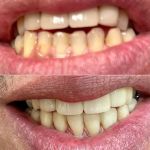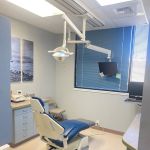How to Select the Right Dentist for Braces
When I first thought about getting braces, I had no idea where to start. My smile was something I had always wanted to improve, but the idea of going through the process seemed overwhelming. After doing some research and consulting with friends, I learned that the most important step is selecting the right dentist or orthodontist. Your dentist will be guiding you through your braces journey, so it’s crucial to choose someone who is not only qualified but also someone you feel comfortable with.
In this article, I’ll share the key steps I took to select the right dentist for braces, and the factors you should consider when making your decision. From understanding the different types of dental professionals to evaluating their experience and approach to braces, these tips will help you find the best fit for your smile.
1. Understanding the Difference Between Dentists and Orthodontists
The first thing I learned during my search for a dentist for braces was the difference between a general dentist and an orthodontist. While both are dental professionals, they specialize in different areas of dental care. A general dentist is typically the one you visit for regular cleanings, fillings, and overall dental health maintenance. However, when it comes to braces, an orthodontist is the specialist who focuses on aligning teeth and correcting bite issues.
For me, it was important to find an orthodontist who had specific training and experience in providing braces treatments. While some general dentists do offer braces services, orthodontists have additional training in how to properly manage the movement of teeth and address complex dental issues. After all, getting braces is a long-term commitment, and I wanted a professional who specialized in this area.
2. Researching the Dentist’s Qualifications and Experience
Once I understood the difference between a dentist and an orthodontist, I focused on finding someone with the right qualifications. I looked up orthodontists in my area and checked their credentials to ensure they were properly certified by the American Association of Orthodontists (AAO). Certification from a recognized professional organization was one of the key factors I considered, as it reassured me that the dentist had undergone the necessary training and continued education to stay up to date with advancements in orthodontic treatments.
I also made sure to look into their experience specifically with braces. It’s easy to find a dentist who can do the basics, but I wanted to know if they had experience with different types of braces, including traditional metal braces, ceramic braces, and even invisible aligners. A dentist with a broad range of experience can offer a more personalized treatment plan based on my needs and preferences.
3. Considering Treatment Options
Another important factor I considered was the variety of treatment options the dentist or orthodontist offered. Not all braces are created equal, and there are many options available, including traditional metal braces, clear braces, and Invisalign. Some people, like myself, may prefer a more discreet option, so I wanted to make sure that the dentist I chose offered various options for my braces treatment.
During my consultations, I asked about the pros and cons of each type of braces and how long each treatment would take. I learned that traditional metal braces are highly effective but more noticeable, while clear ceramic braces are less noticeable but may require more maintenance. Invisalign, which is clear and removable, can be an excellent option for those who want a more flexible solution, but it’s important to understand that not everyone is a candidate for this treatment. I made sure to choose a dentist who could offer me different options and explain the best solution for my case.
4. Scheduling a Consultation
After narrowing down my list of potential dentists, I scheduled consultations with a few to get a sense of the office environment and the orthodontist’s approach. I found that a consultation was crucial to understanding how comfortable I would feel with the dentist and whether their treatment plan aligned with my expectations.
During the consultation, I asked about the process for getting braces, the expected timeline, and the cost. I also wanted to know if the orthodontist offered any payment plans or financing options, as braces can be expensive. The office staff was friendly and professional, which was important for me in creating a comfortable, supportive atmosphere. I was also able to ask specific questions about my dental health and the potential outcomes of treatment, which helped me feel more confident in my decision.
5. Considering Office Location and Accessibility
Another key factor I had to consider was the office’s location and accessibility. Braces treatment requires regular appointments, so I wanted to make sure the office was convenient to my home or work. I didn’t want to waste too much time traveling for appointments, especially when I knew I’d need to visit the orthodontist frequently during my treatment.
Additionally, I checked the office hours to ensure they were flexible enough to accommodate my schedule. Some orthodontists offer evening or weekend appointments, which was a huge plus for me. Convenience can make a big difference when committing to long-term treatment like braces.
6. Patient Reviews and Testimonials
One of the final steps in my decision-making process was reading patient reviews and testimonials. I looked up online reviews and asked for recommendations from friends and family who had braces. Hearing about other people’s experiences with their orthodontists gave me a better idea of what to expect and whether the orthodontist I was considering had a good reputation for providing quality care.
Personally, I found it very helpful to read reviews that highlighted the professionalism of the staff, the comfort of the office environment, and how the dentist communicated throughout the treatment process. A dentist who listens to your concerns and explains the treatment plan clearly is essential for a positive experience with braces.
7. Trusting Your Instincts
After going through all the research, consultations, and reviews, the final thing I did was trust my instincts. Selecting the right dentist for braces isn’t just about credentials and experience—it’s about finding someone you feel comfortable with. You’ll be working with this person for an extended period, and it’s important that you feel confident in their ability to care for your smile.
In the end, I chose a dentist who made me feel heard, answered all my questions thoroughly, and provided a treatment plan that made sense for my lifestyle and budget. I’m glad I took the time to carefully select the right professional, as it has made all the difference in my braces journey. If you’re considering braces, I encourage you to follow these steps and find a dentist or orthodontist who is right for you!







 TK Dental Wayne, NJ | General, Cosmetic, Restorative Dentists. Dental Implants, Crowns, Bridges | Tatyana Kaminar DDS4.0 (139 review)
TK Dental Wayne, NJ | General, Cosmetic, Restorative Dentists. Dental Implants, Crowns, Bridges | Tatyana Kaminar DDS4.0 (139 review) The Dental Center of Eagan4.0 (107 review)
The Dental Center of Eagan4.0 (107 review) Rainier Dental4.0 (198 review)
Rainier Dental4.0 (198 review) Plainfield Dental4.0 (171 review)
Plainfield Dental4.0 (171 review) Parkland Pacific Dental4.0 (88 review)
Parkland Pacific Dental4.0 (88 review) Jared Berger DMD3.0 (4 review)
Jared Berger DMD3.0 (4 review) The Importance of Oral Health Education During Pregnancy for a Healthy Pregnancy
The Importance of Oral Health Education During Pregnancy for a Healthy Pregnancy Best Tips for Brushing Your Teeth Properly for Healthy Gums: Essential Techniques for Oral Health
Best Tips for Brushing Your Teeth Properly for Healthy Gums: Essential Techniques for Oral Health Why Skipping Dental Checkups Can Lead to Bigger Oral Health Problems
Why Skipping Dental Checkups Can Lead to Bigger Oral Health Problems Advantages of Porcelain Dental Restorations
Advantages of Porcelain Dental Restorations How Can Diabetes Cause Tooth and Gum Problems? Preventing and Managing Oral Health Issues
How Can Diabetes Cause Tooth and Gum Problems? Preventing and Managing Oral Health Issues Healthy Habits for Promoting Good Oral Health and Hygiene: Tips for a Healthy Smile
Healthy Habits for Promoting Good Oral Health and Hygiene: Tips for a Healthy Smile